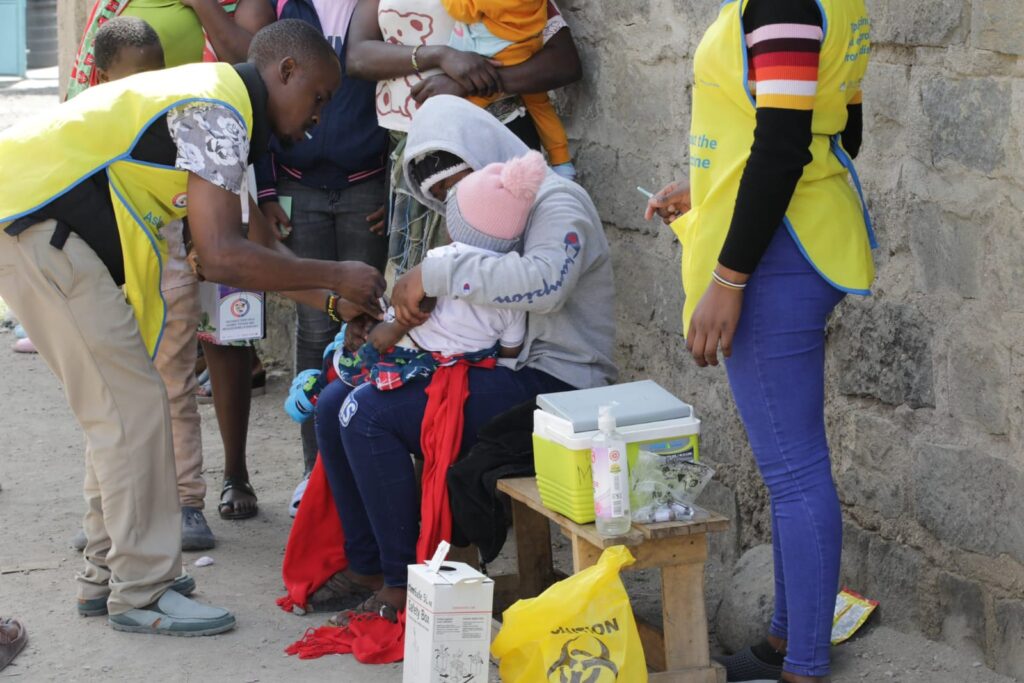
Stepping into a busy health center in the city or a remote clinic in far flung areas, one can see the determination of parents and healthcare workers alike, each vaccination administered is a step toward safeguarding the health of Kenya’s children. These moments highlight a broader commitment that is, Kenya’s ongoing effort to build a stronger, healthier future through immunization. Protecting the youngest citizens.
This commitment was emphasized by Public Health Principal Secretary Mary Muthoni during the Gavi Special Reception on Africa’s Leadership in Health Advancements Toward the Next Generation, held alongside the Ninth Tokyo International Conference on African Development (TICAD 9). She reiterated Kenya’s ambition to develop local vaccine manufacturing capabilities and reinforce regional health security.
“This effort extends beyond simply producing vaccines,” Muthoni explained. “It is about ensuring long-term resilience through political commitment, community involvement, and innovative collaborations.”
Progress Amid Persistent Challenges
Kenya has made notable strides in childhood vaccination, with approximately 80% of children aged 12–23 months receiving all recommended vaccines. Coverage rates for key vaccines like BCG and measles-rubella remain high, and the introduction of new vaccines, such as the HPV vaccine, marks important progress.
However, challenges persist. Roughly 3% of children, an estimated 48,000 annually, do not receive any vaccines, often due to geographic or social barriers. Girls, in particular, have lower rates of HPV vaccination, underscoring ongoing gender and access disparities.
These gaps stress the urgency of Kenya’s push toward vaccine self-sufficiency. At present, more than 80% of Kenya’s vaccines are sourced through donor support, highlighting the need to develop local manufacturing capacity.
Moving Toward Vaccine Independence
Central to this goal is the Kenya BioVax Institute, which plans to begin producing vaccines domestically by 2027. Supported by the World Bank, this facility will initially focus on vaccines critical to child health, like pneumococcal and typhoid vaccines, and will later expand to cover vaccines for epidemic threats such as cholera and Ebola.
Kenya is also strengthening partnerships with global organizations like the International Vaccine Institute (IVI), hosting its regional office and joining initiatives like the Africa Vaccine Expansion for Community Immunization (AVEC). These collaborations position Kenya as a potential regional hub for vaccine production.
At the Gavi reception, Muthoni highlighted that local vaccine manufacturing is vital for equitable health outcomes. “Our aim is to ensure Kenya not only meets its own needs but also supports neighbouring countries in times of crisis,” she said.
Building Resilience for the Future
The gathering brought together leaders from across Africa and the globe to celebrate progress and discuss the road ahead. The conversations highlighted the importance of sustainable funding, technology sharing, and collective effort to build health systems capable of withstanding future challenges.
For Kenya, this means continuing to increase vaccine coverage, closing the gaps that leave many children unprotected, and reducing reliance on external suppliers.


